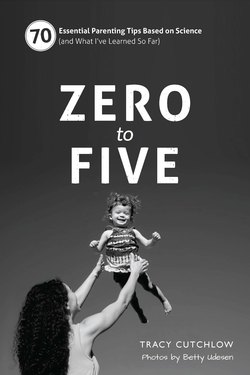Читать книгу Zero to Five - Tracy Cutchlow - Страница 21
На сайте Литреса книга снята с продажи.
ОглавлениеCreate a feeling of safety
Yes, you should anchor your furniture to the walls and lock away your cleaning supplies. But that’s not the kind of safety I’m talking about here.
Your baby’s strongest need is to feel safe with you.
Children are exquisitely sensitive to their environments. If you create an environment of safety, love, and emotional stability, good things happen:
• Baby’s brain develops a healthy stress-response system, efficiently deploying and then reducing stress hormones as needed.
• With stress hormones in balance, baby’s neural circuits for learning and reasoning are protected. The cardiovascular and immune systems can function properly.
• Life’s smaller stresses (“No shirt! I don’t want it!”) become chances for growth, because supportive relationships buffer the negative effects of stress.
• Baby sees your healthy responses to stressful experiences and gets practice responding in healthy ways.
In a home with high levels of conflict, on the other hand, baby’s stress-response system is damaged. The system is either forced into a state of constant high alert or dulled into reacting too mildly to stress. Baby is unable to form a trusting attachment with caregivers (see page). Later, the child is more likely to be aggressive and delinquent. You might think babies are too young to understand that their parents are fighting. But babies younger than 6 months old can tell something is wrong. Babies’ blood pressure and heart rate rise, and so do their levels of the stress hormone cortisol.
How you fight matters
That doesn’t mean you can never fight. Not all parents’ fights hurt a child’s brain development. If, when you argue, you are supportive of your partner and show small signs of affection (see page), children learn that you can and will manage conflict in a way that preserves family harmony. If you are hostile with your partner, making threats and lobbing insults, or you’re physically aggressive, that’s when the conflicts harm kids.
Baby’s stress-response system develops over the first year
The kinds of things that stress baby (that is, increase her cortisol level) change as experiences fine-tune baby’s stress-response system.
| Newborn | Cortisol increases even if baby is picked up |
| 3 months | Being picked up is no longer stressful, but a doctor exam is |
| 6 months | Cortisol is less reactive during a doctor exam and shots |
| 9 months | Being left with a trusted babysitter barely increases cortisol |
| 13 months | Baby can be upset with no increase in cortisol |
